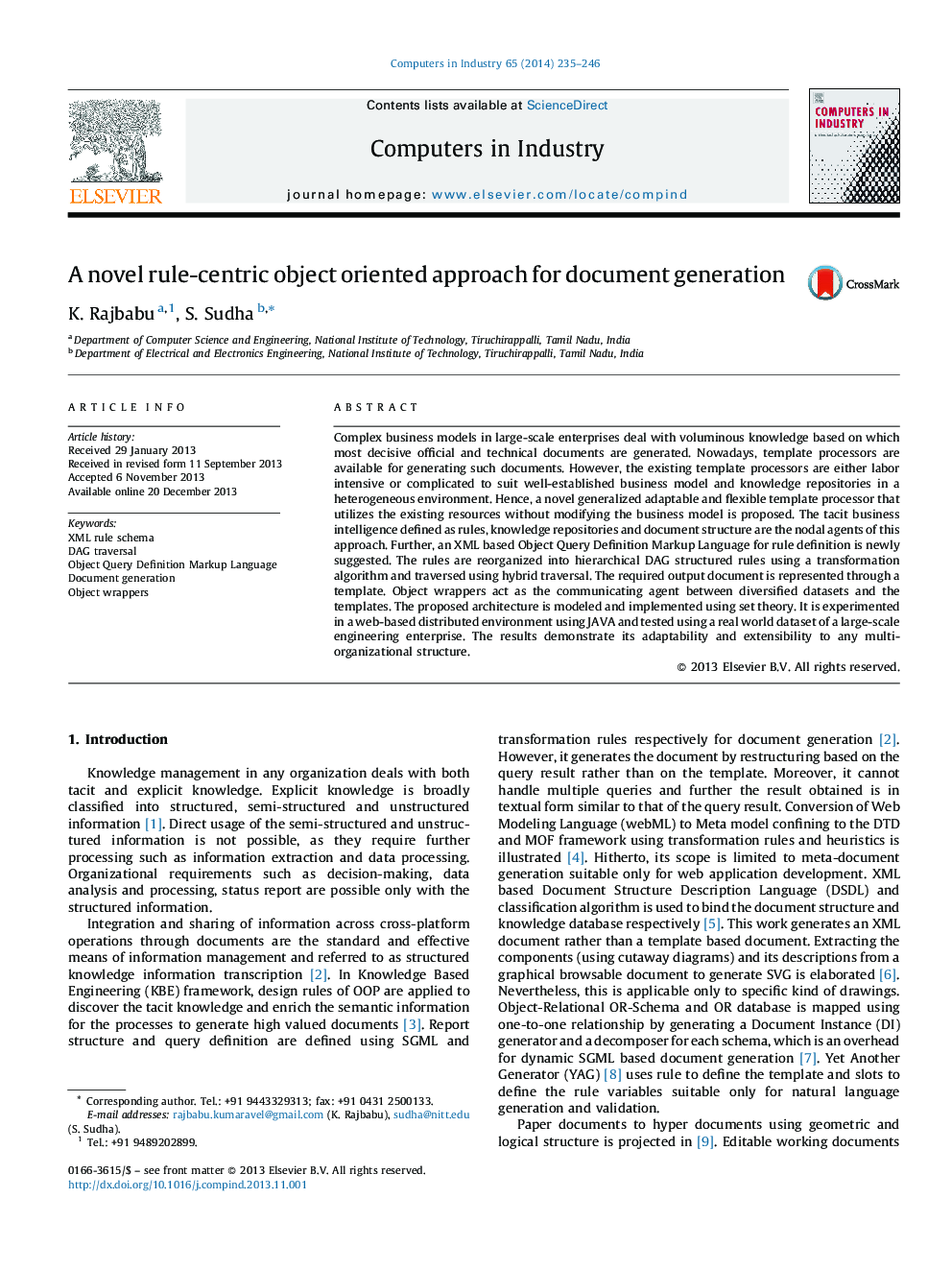| Article ID | Journal | Published Year | Pages | File Type |
|---|---|---|---|---|
| 509012 | Computers in Industry | 2014 | 12 Pages |
•Generalized rule centric approach for structure document generation.•Proposed OQDML language and object wrappers are used to model tacit and explicit knowledge.•Object relational principle used for DAG transformation and its hybrid traversal.•This approach is adaptable to any business model and independent of environment and platform.
Complex business models in large-scale enterprises deal with voluminous knowledge based on which most decisive official and technical documents are generated. Nowadays, template processors are available for generating such documents. However, the existing template processors are either labor intensive or complicated to suit well-established business model and knowledge repositories in a heterogeneous environment. Hence, a novel generalized adaptable and flexible template processor that utilizes the existing resources without modifying the business model is proposed. The tacit business intelligence defined as rules, knowledge repositories and document structure are the nodal agents of this approach. Further, an XML based Object Query Definition Markup Language for rule definition is newly suggested. The rules are reorganized into hierarchical DAG structured rules using a transformation algorithm and traversed using hybrid traversal. The required output document is represented through a template. Object wrappers act as the communicating agent between diversified datasets and the templates. The proposed architecture is modeled and implemented using set theory. It is experimented in a web-based distributed environment using JAVA and tested using a real world dataset of a large-scale engineering enterprise. The results demonstrate its adaptability and extensibility to any multi-organizational structure.
